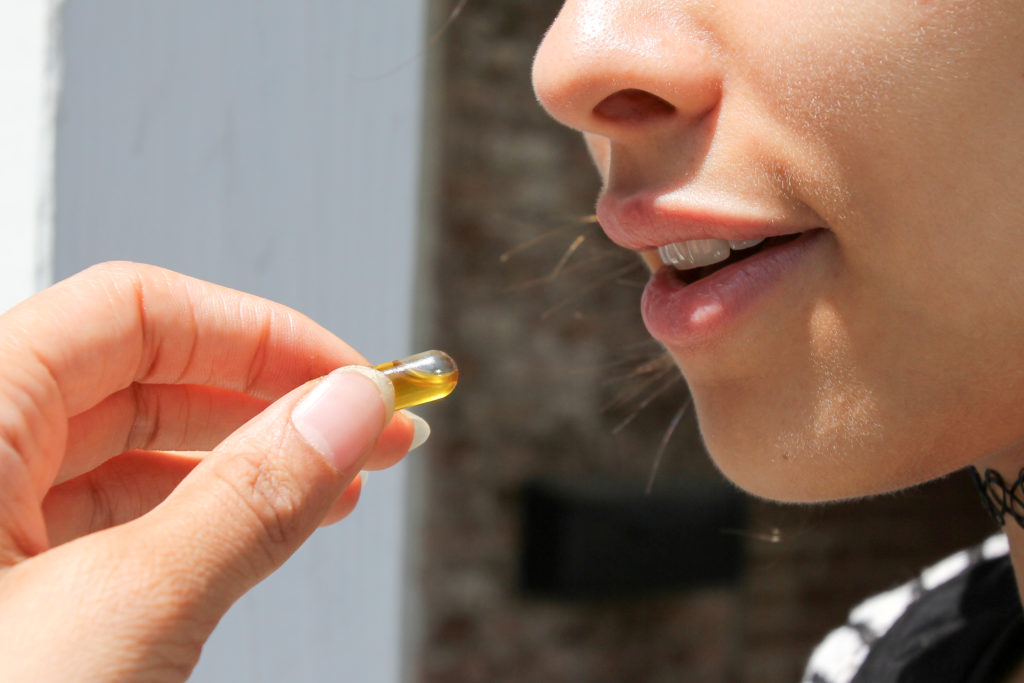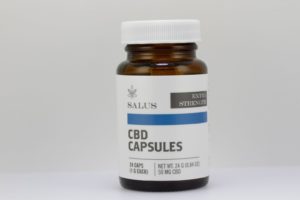
Chances are, you’ve heard of THC. This cannabinoid produced by marijuana has pain relieving and palliative effects, but it is most famous for its psychoactive properties. There are also multiple cannabinoids found in marijuana that affect the body differently than THC. Cannabidiol or CBD has many of the same benefits that THC has; however, it does not produce the hallucinogenic or “high” effects. Different amounts of THC and CBD can be used on their own or in combination to create a unique medicinal effect that can address a wide array of issues.
Everyone has an endocannabinoid system that utilizes receptors (CB1 and CB2) throughout the body to regulate signals from and to our brains. These receptors are activated with endocannabinoids produced by the body but are also activated by cannabinoids found in marijuana. THC has a particular affinity for binding with CB1 receptors, which helps in the relief of pain, nausea, insomnia, and can aid in appetite stimulation. This is also responsible for the psychoactive or “high” effects that are associated with cannabis.

CBD, on the other hand, has a low binding affinity for CB1 and CB2 receptors. Instead, CBD interacts with the way these receptors bind with THC, modulating the psychoactive effects. Beyond the endocannabinoid receptors, CBD activates other receptors and ion channels that have a plethora of positive effects. For instance, CBD can activate the 5-HT1A serotonin receptor that helps alleviate symptoms such as anxiety, nausea, vomiting, and the perception of pain.
The majority of the receptors that CBD does interact with are typically neurotransmitters associated with serotonin. This explains the calming, anti-anxiety effects most people feel when medicating with CBD. Most patients who use CBD products report not feeling anything beyond the cessation of negative symptoms. This has led some to describe CBD as non-psychoactive or having no “high” sensation. Although this is the case for many, it is not necessarily true. CBD is technically psychoactive because of its anti-anxiety properties, but many patients will not experience any drastic change to their thoughts or perception. Everyone has their own endocannabinoid system that processes cannabinoids in its own way, so it is best to experiment with low doses while designing your cannabis treatment plan.
While THC alleviates pain symptoms by binding to cannabinoid receptors, CBD mediates pain perception by altering the way THC binds to those receptors. CBD also binds to the receptors that are responsible for regulating many important functions involved in homeostasis, equilibrium among interconnected systems of the body. As a result, some of the major benefits from taking CBD apart from pain relief include neuroprotective effects like reducing inflammation, convulsions, anxiety, and nausea. CBD can even assist with falling asleep and blood sugar regulation.
Many people who use CBD to treat their ailments find that CBD by itself is enough to experience relief. Taking CBD with THC often confers the effects of both with greater efficiency. Commonly referred to as the “entourage effect”, the addition of different cannabinoids tends to increase the pain relieving and palliative effects. CBD has also been reported to negate the overly intense psychoactive effects of high doses of THC. Although THC and CBD can both be effective on their own, many patients benefit from finding the right balance of the two cannabinoids.
Interested in learning more about CBD? Schedule a consultation with an expert. If you’re in the Ann Arbor area, contact the team at Arbors Wellness for a free consultation.